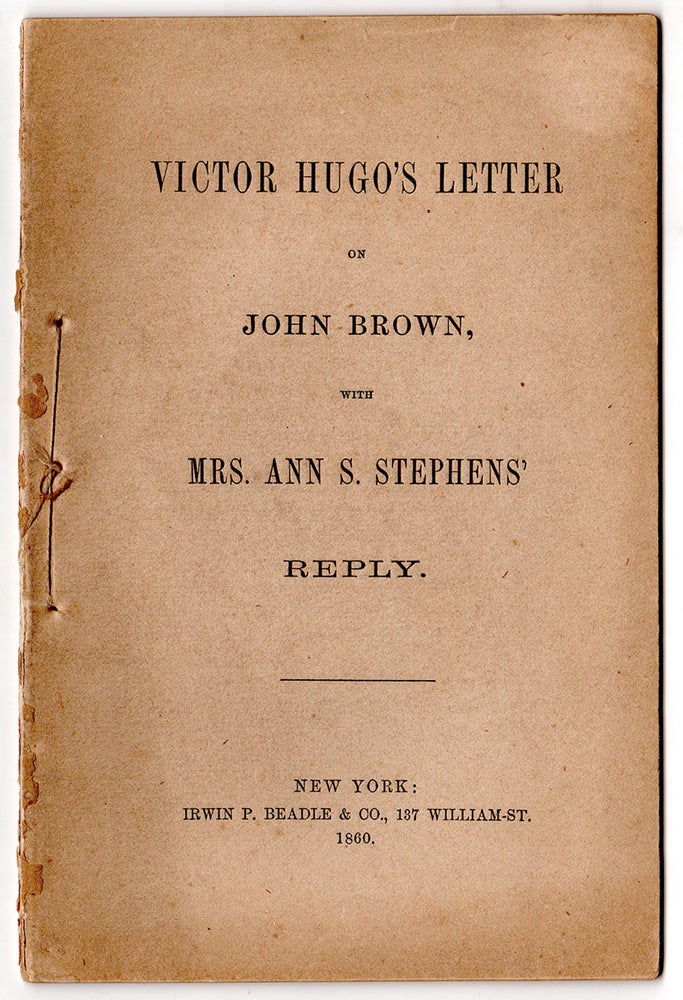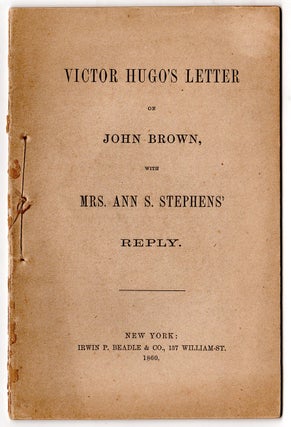Victor Hugo’s Letter On John Brown, With Mrs. Ann S. Stephens’ Reply.
New York: Irwin P. Beadle, 1860. 12mo (18.3 x 12 cm) 24 pp. A pamphlet printing of Victor Hugo’s impassioned letter on behalf of John Brown, accompanied by two letters of remonstrance by the American writer Ann S. Stephens, one addressed to the editors of the New York Express and the other to Hugo himself. Originally sent to the London Star, Hugo’s letter makes an eloquent defense of Brown’s controversial actions and protests his death sentence. A stay of execution was granted Brown on 2 Dec. 1859. Hugo’s letter was written on the same day in the brief interval before Brown’s deferred execution, which was set for Dec. 16th. It reads in part:
When we reflect on what Brown, the liberator…has striven to effect; and when we remember that he is about to die, slaughtered by the American Republic, the crime assumes an importance coextensive with that of the nation which would commit it; and when we say to ourselves that this nation is one of the glories of the human race…we declare our conviction that John Brown will not die, for we recoil horror-struck from the idea of so great a crime committed by so great a people.
Hugo insists the “universal conscience of humanity is an ever-watchful eye” and ends with the declaration that the murder of Brown would be “something more terrible than Cain slaying Abel: it is Washington slaying Spartacus.”
Also included here are two letters written after Brown’s execution by Ann S. Stephens (1810–1886), an American novelist and magazine editor whose melodramatic novels enjoyed a broad readership as some of the first “dime novels.” Here Stephens responds to the “wild eloquence” of Hugo’s “misinformed” letter, which she perceives as assailing America: “the effect of such letters and of the spirit which incites them…is fast destroying the holy brotherhood of which our Constitution was the bond and seal.” She asserts this is an occasion for “womanly interference,” to soften the bitterness of sectional strife and to reconcile the torn parts of America in the wake of the divisive raid on Harper’s Ferry. Ultimately, Stephens contests Hugo’s impulse to turn Brown’s crime into patriotism via poetic eloquence and she affirms the upholding of the law. “John Brown is dead. Proven guilty of treason—condemned for atrocious murders—he has atoned for these crimes on the scaffold.”
CONDITION: Sewing broken, leaves loose.
Item #4931
Sold



